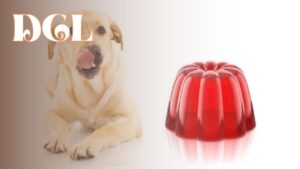Hey there! Ever wondered if it’s safe for dogs to have sugar-free jello? Well, I’ve got the scoop for you. In this article, I’ll be diving into the world of sugar-free jello and its potential effects on our furry friends. We’ll explore the ingredients, risks, and benefits of feeding sugar-free jello to dogs, as well as safe alternatives that you can consider.
Now, I’m no veterinarian, but I’ve done my research to provide you with some valuable insights. It’s always important to consult with a professional for personalized advice, especially when it comes to your pup’s diet.
So, grab a cup of coffee (or maybe some jello, if that’s your thing) and let’s get started on unraveling the mystery of sugar-free jello and our four-legged pals.
- Understanding the Ingredients in Sugar-Free Jello
- Risks and Potential Side Effects of Feeding Sugar-Free Jello to Dogs
- Benefits of Avoiding Sugar-Free Jello for Dogs
- Safe Alternatives to Sugar-Free Jello for Dogs
- Consult with a Veterinarian for Personalized Advice
- Frequently Asked Questions
- Conclusion
Understanding the Ingredients in Sugar-Free Jello
You’re probably wondering what’s in sugar-free Jello that makes it safe (or not safe) for dogs. As a dog owner, I’ve done my fair share of research on this topic.
Sugar-free Jello contains a few key ingredients that can be harmful to dogs if consumed in large quantities.
The first ingredient to watch out for is artificial sweeteners, such as aspartame or sucralose. These sweeteners are used to replace the sugar in sugar-free Jello, but they can be toxic to dogs. Ingesting large amounts of artificial sweeteners can lead to symptoms like vomiting, diarrhea, and even seizures in dogs.
Another ingredient to be cautious of is xylitol. Xylitol is a sugar alcohol that is commonly found in sugar-free products, including Jello. While it is safe for humans, it is extremely toxic to dogs. Just a small amount of xylitol can cause a rapid release of insulin in a dog’s body, leading to a dangerous drop in blood sugar levels.
In conclusion, it’s best to avoid giving sugar-free Jello to your furry friend. The artificial sweeteners and xylitol present in the ingredients can pose serious health risks to dogs. If you are looking for a treat for your dog, it’s always safer to stick with dog-friendly options that are specifically made for their consumption.

Risks and Potential Side Effects of Feeding Sugar-Free Jello to Dogs
There are potential risks and side effects to consider when feeding your furry friend this gelatinous treat. While sugar-free jello may seem like a harmless snack, it contains several ingredients that can be harmful to dogs. One such ingredient is xylitol, a common sugar substitute found in many sugar-free products. Xylitol is toxic to dogs and can cause a sudden release of insulin, leading to dangerously low blood sugar levels. This can result in symptoms such as vomiting, lethargy, seizures, and even liver failure.
Another ingredient to be cautious of is artificial sweeteners, such as aspartame or sucralose, which are often used in sugar-free jello. These sweeteners can cause digestive upset in dogs, leading to symptoms like diarrhea and gas. Additionally, some dogs may have an allergic reaction to certain artificial sweeteners, causing itching, swelling, and difficulty breathing.
To help you better understand the risks and potential side effects of feeding sugar-free jello to your dog, I have created a table below:
| Ingredient | Potential Side Effects |
|---|---|
| Xylitol | Low blood sugar, liver failure |
| Artificial sweeteners | Digestive upset, allergic reactions |
It is important to always read the ingredient list before giving your dog any food or treats. If you suspect your dog has ingested sugar-free jello or any product containing xylitol or artificial sweeteners, it is crucial to seek veterinary care immediately. Remember, it’s better to be safe than sorry when it comes to your furry friend’s health.
Benefits of Avoiding Sugar-Free Jello for Dogs
By avoiding sugar-free gelatin treats, your furry companion can enjoy a happier, healthier life and avoid potential health risks. Sharing a sweet treat with your dog may be tempting, but it’s important to remember that sugar-free jello can contain artificial sweeteners like xylitol, which is highly toxic to dogs. Xylitol can cause a rapid release of insulin, leading to a dangerous drop in blood sugar levels. This can result in symptoms such as vomiting, loss of coordination, seizures, and in severe cases, liver failure.
Avoiding sugar-free jello can also benefit your dog’s overall health. Many sugar-free jello products contain additives and preservatives that can be harmful to dogs, causing digestive issues like diarrhea or upset stomach. Additionally, sugar-free jello is often low in nutritional value and can contribute to weight gain if consumed in excess.
Instead of sugar-free jello, there are plenty of safe and healthy alternatives you can offer your dog as a treat. Fresh fruits like apples, blueberries, and watermelon can be delicious and nutritious options. You can also find specially formulated dog treats that meet your dog’s dietary needs. Remember, a balanced and nutritious diet, along with regular exercise, is key to keeping your furry friend happy and healthy.
Safe Alternatives to Sugar-Free Jello for Dogs
Instead of risking your furry friend’s health with sugar-free jello, treat them to a juicy, refreshing slice of watermelon or a crunchy, sweet apple. These natural alternatives not only provide a delicious snack for your dog, but also offer numerous health benefits. Here are three reasons why these fruits are a great choice for your canine companion:
- Hydration: Watermelon is an excellent source of hydration for dogs, especially during hot summer days. Its high water content helps keep them cool and prevents dehydration, which is essential for their overall well-being.
- Vitamins and nutrients: Watermelon and apples are packed with vitamins and nutrients that support your dog’s immune system and promote good digestion. They contain vitamins A, C, and B6, as well as potassium and fiber, all of which contribute to a healthy diet for your pet.
- Dental health: Chewing on crunchy fruits like apples can help clean your dog’s teeth and freshen their breath. The fibrous texture of these fruits acts as a natural toothbrush, reducing plaque buildup and maintaining good oral hygiene.
By choosing these safe alternatives to sugar-free jello, you can ensure your dog enjoys a tasty treat while also prioritizing their health and well-being.

Consult with a Veterinarian for Personalized Advice
To ensure your pup’s well-being, it’s essential to consult with a veterinarian for personalized advice. Every dog is unique and may have different health considerations, so seeking information online or relying on the experiences of others may not be sufficient. A veterinarian can provide expert guidance based on your dog’s specific needs, taking into account factors such as age, breed, weight, and any existing health conditions.
When it comes to alternative treats for dogs, there are numerous options available that can be both safe and enjoyable for your furry friend. Some popular choices include fresh fruits like apples or bananas, which can provide natural sweetness without added sugars or artificial ingredients. Additionally, vegetables like carrots or green beans can be great options for dogs, as they are low in calories and high in nutrients.
It’s important to remember that moderation is key when introducing new treats to your dog’s diet. Even though certain foods may be safe for dogs to consume, excessive amounts can still cause digestive issues or weight gain. That’s why it’s crucial to consult with a veterinarian who can provide personalized advice tailored to your dog’s specific needs. By doing so, you can ensure that your pup stays happy, healthy, and well-nourished.
Frequently Asked Questions
Can dogs have regular jello instead of sugar-free jello?
No, dogs should not have regular jello either. Jello contains artificial sweeteners that can be harmful to dogs. It’s best to avoid giving them any kind of jello as it is not a suitable treat for them.
How much sugar-free jello can I give my dog?
I would not recommend giving your dog any amount of sugar-free jello. It contains artificial sweeteners like xylitol, which can be toxic to dogs and lead to symptoms like low blood sugar and liver damage.
Are there any specific breeds that should avoid sugar-free jello?
There are no specific breeds that should avoid sugar-free jello. However, it’s important to remember that not all dogs can tolerate artificial sweeteners, so it’s best to consult with a veterinarian before giving it to your dog.
Can I use sugar-free jello as a treat for training my dog?
Yes, I can use sugar-free jello as a treat for training my dog. It’s a low-calorie option that can be rewarding and enjoyable for them while still maintaining a healthy diet.
Are there any natural alternatives to sugar-free jello for dogs?
There are natural alternatives to sugar-free jello for dogs. I prefer using fruits like apples or berries as treats for training. They are healthier and provide natural sweetness without any artificial ingredients.
Conclusion
In conclusion, after researching dogs and sugar-free jello, I’ve learned that it’s not safe to feed it to dogs. Sugar-free jello contains ingredients that can be harmful to our furry friends. It’s important to prioritize their health and find safe alternatives for them to enjoy.
Always consult with a veterinarian for personalized advice and make sure to provide your dog with healthy and appropriate treats.


